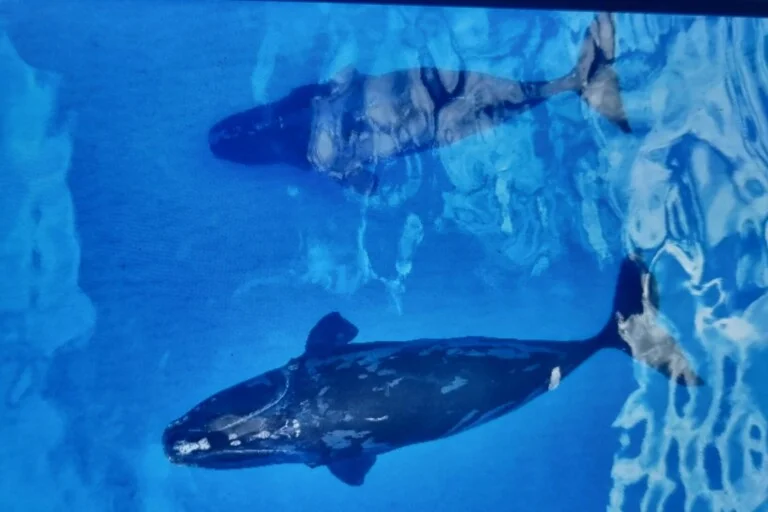
Rare Sighting: Critically Endangered Right Whales Spotted in The Bahamas
In a remarkable event for marine conservation, two North Atlantic right whales were spotted swimming in the Bahamas on April 15, marking a historic first for the species in this region. This sighting is not only significant because it showcases the resilience of these critically endangered mammals, but also raises important questions about their migration patterns and the challenges they face.
Isaac Ellis, a captain at Neal Watson’s Bimini Scuba Center, experienced a moment of awe when he spotted the whales during a dolphin-watching tour. "That moment for me was breathtaking, and I couldn’t fully gather myself. I thought it was fake at first," he shared, reflecting on the rarity of the event. For those who venture into marine environments, such encounters are often considered a once-in-a-lifetime opportunity.
Typically, these whales are found nearly 1,240 miles north of the Bahamas, off the coast of Boston. Scientists have monitored their movements closely, with North Atlantic right whale populations dwindling to just 372 individuals due to human-related threats such as ship strikes and entanglements with fishing gear. This alarming statistic reveals that more than a quarter of the population has perished since 2011 alone, underscoring the urgency for protective measures.
The whales, identified as adult females named Koala and Curlew, were recognized through footage captured by Ellis’s group and confirmed by researchers at the New England Aquarium. Interestingly, both whales were previously spotted outside of their usual habitats, raising intriguing questions about what compelled them to make such a journey. Philip Hamilton, a senior scientist at the Anderson Cabot Center, noted that it is not common for right whales to be seen together unless they are mother and calf, which Koala and Curlew are not.
Environmental scientists speculate that shifting ocean conditions, including rapidly warming waters, may influence the distribution of their primary food source—copepods. With temperatures in the western North Atlantic rising roughly four times faster than the global ocean average, these changes further impact the delicate balance of the ecosystem that the right whales depend upon.
This incredible sighting is a beacon of hope amidst ongoing challenges. Yet, it serves as a powerful reminder of the importance of continuous conservation efforts. As we reflect on this extraordinary occurrence, one must wonder: What will it take to ensure the survival of these magnificent creatures? Your thoughts on this issue are welcome; feel free to share your comments below the article!